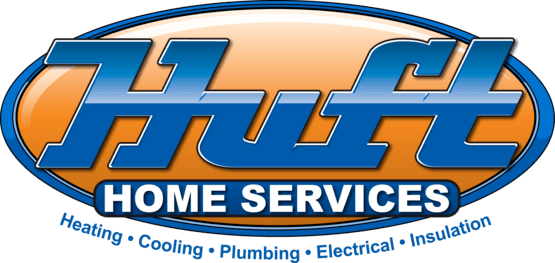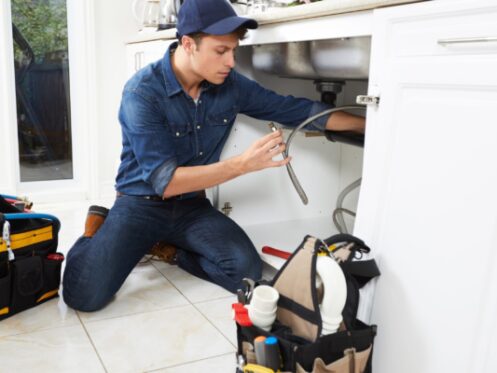The kitchen is the heart of the home, and a well-functioning plumbing network is vital to keeping it running smoothly. However, like any other part of your home, kitchen plumbing can face many problems that disrupt your daily life. From clogged drains and leaky faucets to water heater issues and malfunctioning garbage disposals, kitchen plumbing issues can range from minor frustrations to major inconveniences.
Kitchen plumbing problems affect your kitchen’s functionality and might result in inadvertently wasted water, high energy bills, and property damage. Understanding these problems can help you maintain a healthy and properly functioning plumbing system and even avoid major and expensive repairs in the long run. Here are eight warning signs you have kitchen plumbing problems and ways to address and prevent them.
1. Clogged Drain
A clogged sink drain is one of the most common kitchen plumbing problems many homeowners face. When you pour cooking fat or oil down your kitchen sink, it can solidify and accumulate in the drain, causing a blockage in the long run. Some food scraps, particularly those that don’t break down easily, can also get stuck in the kitchen drain and eventually cause a clog.
The other cause of a clogged drain is hard water. Dissolved minerals and deposits from hard water can attach to the sides of the kitchen pipes whenever water passes through the drain. Over time, more deposits attach to the accumulated mineral deposits, eventually clogging your kitchen drain. As a result, your kitchen drains will start running slowly, causing water backups in your kitchen sink.
If you suspect your kitchen has a blocked drain line, call an experienced plumber to inspect the kitchen plumbing. The professional can easily locate and eradicate clogs with specialized tools and video inspections.
2. A Faulty Garbage Disposal
A garbage disposal is a handy household appliance that helps you easily dispose of food waste. However, like any other appliance, it can also develop problems such as leaks, jams, and clogs. Your garbage disposal handles a lot of waste, but sometimes small and hard objects can jam its blades. As a result, your kitchen sink might get clogged. You might also experience garbage disposal leaks due to damaged seals and worn-out gaskets.
To prevent garbage disposal problems, you should avoid putting hard or fibrous foods, such as potato peels, coffee grounds, small bones, eggshells, and popcorn kernels, down your garbage disposal. Running cold water when using this appliance can also help prevent clogs. If your garbage disposal leaks, jams, or clogs, contact a plumber immediately to inspect and make the necessary repairs.
3. Leaky Faucet
Another common kitchen plumbing problem is a leaky faucet. Your kitchen faucets can leak due to various reasons including a damaged cartridge, corroded valve seats, or worn-out O-rings or seals. A dripping faucet not only causes stains on your sink but can also waste a lot of water, leading to higher water bills. Luckily, fixing leaky faucets is usually a small task that involves tightening loose screws or replacing the damaged parts.
Sometimes, you might also experience leaks under your sink. These leaks can be big and obvious sometimes, but other times they can be difficult to identify. Under-sink leakages can come from the faucet, P-trap, or dishwasher drain, just to name a few places. Whether you need assistance figuring out where the leak is coming from or stopping it from causing more problems, getting a plumbing expert on board is the best call.
4. Low Water Pressure
Reduced water pressure is another frustrating issue that can affect your plumbing system. Factors like faulty pressure regulators, clogged pipes, or faulty fixtures can cause reduced water pressure. Hidden plumbing leaks can also contribute to low water pressure in your kitchen. If your water pipes develop cracks or small holes, water can seep into the ground before reaching your faucet spouts, reducing water pressure.
Low water pressure can make filling cooking pots, washing dishes, and performing other kitchen tasks difficult. If you notice sudden changes in your water pressure, make sure that your main water valve is completely open. Call your plumber immediately if this valve is completely open and your area doesn’t have municipal water supply problems. The professional will inspect your plumbing for leaks and clogs to restore the water pressure.
5. Insufficient or No Hot Water
Hot water is an important resource in your kitchen because it helps you complete tasks such as cleaning and cooking. However, if there is insufficient or no hot water, you need to call your plumber to check your home’s water heater. These appliances can experience various issues, such as sediment buildup and leaks.
A leaking hot water system can reduce the unit’s efficiency and service life. It can also cause major water damage to your residential property if not addressed in time. To prevent water heater issues, experts recommend regularly flushing the tank to prevent sediment buildup. Scheduling water heater maintenance can also help prevent hot water problems.
6. Strange Sounds
If you hear unusual sounds such as bubbling or gurgling from your kitchen plumbing, it might be a sign of a problem with your pipes. Clogs in your drain are the main cause of these noises. Another common sound is water hammers, loud banging noises that occur whenever water flows through the pipes and stops suddenly.
If ignored, water hammers and other unusual noises in your plumbing can damage your kitchen pipes and faucets. Hiring a plumber to inspect your kitchen plumbing can help identify the reason for the strange noises and solve the problem.
7. Refrigerator Leaks
Small pools of water around or beneath your fridge indicate a leak or condensation dripping onto your floor. If your fridge is level, the drain tube or the water supply line might be to blame. A frozen or blocked drain tube prevents water from draining during defrost, leading to leaks.
If your home’s refrigerator has an ice maker or a water dispenser, it comes with a water line to carry water to these two features. If the unit’s water supply line springs a leak or gets clogged, you’ll have a plumbing-related problem. It’s important to have a plumbing expert diagnose and repair any leaks in your fridge to ensure it’s working properly and safely.
8. A Leaking Dishwasher
Another sign you need help with your kitchen plumbing is a leaking dishwasher. There are several possible causes of dishwasher leaks, including:
- Damaged door gasket
- Faulty water inlet valve
- Damaged or cracked tub
- Broken spray arms
- Damaged or clogged drain hose
- Loose or damaged hose connections
- Broken float switch
When not addressed in time, dishwasher leaks can lead to mold growth, increased water bills, and even water damage. If you notice any leaks near your dishwasher, contact an experienced professional to inspect and repair the unit.
Partner With the Plumbing Experts Today!
Kitchen plumbing issues can cause major inconveniences and significant expenses if left unaddressed. However, you can prevent these problems by practicing proper maintenance, like regular plumbing inspections and cleaning. Also, avoiding common mistakes like pouring grease in your drain can help keep your drain lines clean and clear.
Are you facing any of the plumbing issues above? If yes, our trained professionals at Huft Home Services can help. Our plumbing experts are knowledgeable about all types of plumbing systems and will fix the problems before they escalate into major issues.
We also provide electrical, heating, water infiltration, cooling, insulation, air quality, EV charging, lighting, and home performance inspection services throughout Sacramento, CA, and the surrounding regions. Contact us today for reliable plumbing services.




